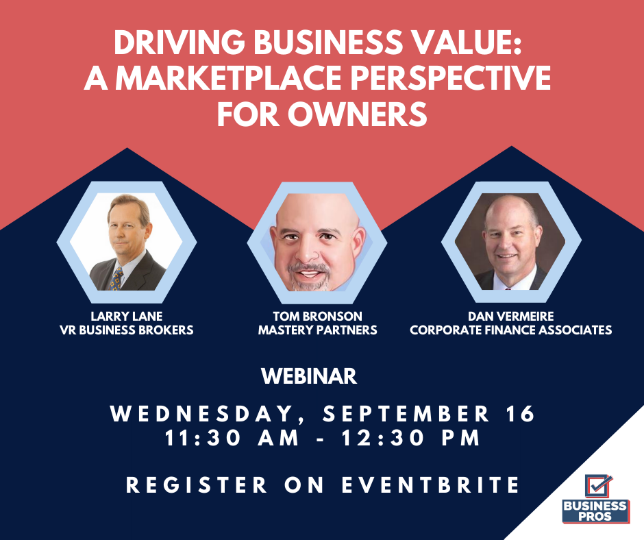

Most business buyers and sellers are wondering what 2021 and beyond will bring. BizBuySell and BizQuest President Bob House provided a range of insights stemming from BizBuySell’s 3rd Quarter Insight Report and a survey of over 2,300 business owners.
The simple fact is that the pandemic has most definitely had a major impact on the buying and selling of businesses. This fact is obvious. But diving deeper, there are a range of insights that can be gleaned.
First, owners do understand that COVID is a massive force in business right now. According to the survey, 68% of owners feel that they would have received a better price for their business in 2019 than in 2020. Only 37% of respondents felt that they would receive a better price this year. Of owners who felt that they would receive a lower price in 2020 than in 2019, 71% of these owners said that their assessment was directly tied to the pandemic and its accompanying economic impact.
A question on the survey asked owners if the pandemic had impacted their exit plans. 55% responded that the pandemic had not changed their exit plans. Additionally, 22% said that they now planned on exiting later, and 12% stated that they planned on exiting earlier. In short, the majority of business owners were not changing their exit plans.
On the other side of the coin, buyers are acknowledging that the present seems to be a very good time to buy. A staggering 81% of buyers stated that they felt confident that they would be able to find an acceptable price point. In terms of their purchasing timeline, 72% of respondents stated that they were planning on buying a business soon. Survey follow-ups indicated that large numbers of buyers were also planning on buying in 2021.
Generational differences are playing a role as well. Baby Boomers tend to be more optimistic than non-boomers as far as their overall views on the recovery. 43% of Baby Boomers now expect the economy to recover within the next year as compared to just 30% of non-Boomers. House pointed out, “Baby Boomers are the generation that did not plan, which makes it harder for them to adjust transition plans if they were preparing to retire, as small businesses don’t have the infrastructure and management teams in place to wait out a bad cycle.”
Based on the information collected by BizBuySell’s 3rd Quarter Insight Report and their survey, it is clear that there is a new wave of buyers on the horizon. The report supports the notion that the pandemic has made small business ownership an attractive option for new entrepreneurs. Factors driving new entrepreneurs into the marketplace include everything from being unemployed and wanting more control over their own futures to a desire to capitalize on opportunities.
Finally, House notes that 2021 could be a “perfect storm for business sales,” as 10,000 Americans will turn 65 each and every day. This means that the supply of excellent businesses entering the marketplace will likely increase dramatically.
Copyright: Business Brokerage Press, Inc.
The post Insights from BizBuySell’s 3rd Quarter Insight Report appeared first on Deal Studio – Automate, accelerate and elevate your deal making.













